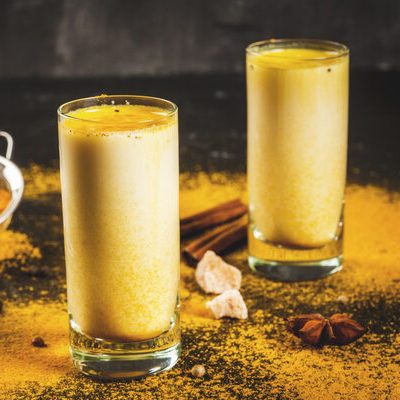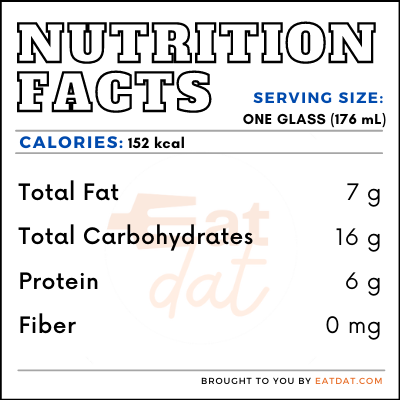
Turmeric Masala Milk
also known as Golden Milk, Turmeric Latte
What is Turmeric Masala Milk?
Turmeric masala milk is a milk recipe that is made with two main ingredients, turmeric and milk.
Turmeric masala milk is of Indian origin and is commonly consumed in northern India during winter in order to prevent colds and for better sleep.
The most popular winter drinks in India are:
- Kahwa Tea
- Masala Chai
- Noon Chai
- Badam Milk
- Hot Toddy
- Kanji
- Mushroom Tea
- Shorba
- Rasam
- Turmeric Milk
- Kadha
- Kesari Milk
Origin of turmeric masala milk
The origin of turmeric can be traced to 2,500 BCE in New Delhi, India. Turmeric infused milk has long been a staple remedy for inflammation, depression, and insomnia in ancient schools of medicine in India such as Ayurveda, Unani, and Siddha. These concoctions have been popular in India for more than 5,000 years. In recent years, turmeric masala milk has become a café favorite in many countries. The current popularity of the turmeric root has led to increased consumption of this and other turmeric-based beverages, such as turmeric juice.
Nutrition
The nutritional value for one glass of turmeric masala milk:

Milk is a good source of protein and calcium, as well as a host of micronutrients, including phosphorus, magnesium, sodium, potassium, and sulfur. Consumption of milk might reduce childhood obesity and instances of type 2 diabetes. It also helps in reducing the risk of cardiovascular diseases, stroke, osteoporosis, and some types of cancers. Turmeric contains curcumin, which is a polyphenol that is beneficial to health and may reduce inflammation, arthritis, soreness, and anxiety. Ingesting turmeric on its own provides none of these benefits because of its poor bioavailability but when combined with other ingredients, such as black pepper or milk, it’s bioavailability increases manifold.
Commercial production
Turmeric masala milk is commonly made fresh and served hot in cafés. Made by adding turmeric, spices, and sweeteners to hot milk, turmeric masala milk is quite popular among healthy eaters. It is also commercially prepared with almond milk, soy milk, and other types of milk alternatives.
Turmeric masala milk recipes
This turmeric beverage is a staple of the Indian diet and can be made with variations. Here are a few recipes:
- Golden Milk
- Vegan Golden Milk
- Turmeric Hot Chocolate
- Golden Turmeric Rose Latte
- Golden Milk Turmeric Smoothie
FDA regulations
Milk comes under the purview of the FDA, which defines it as the lacteal secretion of healthy cows. Milk must be free of colostrum and must be pasteurized. Furthermore, the FDA defines turmeric as a color additive made from grinding the rhizome of Curcuma longa L.
References
Milk!: A 10,000-Year Food Fracas by Mark Kurlansky
Thorning, Tanja Kongerslev et al. “Milk and dairy products: good or bad for human health? An assessment of the totality of scientific evidence.” Food & nutrition research vol. 60 32527. 22 Nov. 2016, doi:10.3402/fnr.v60.32527
https://www.ncbi.nlm.nih.gov/pmc/articles/PMC5122229/
Hewlings, Susan J, and Douglas S Kalman. “Curcumin: A Review of Its Effects on Human Health.” Foods (Basel, Switzerland) vol. 6,10 92. 22 Oct. 2017, doi:10.3390/foods6100092
https://www.ncbi.nlm.nih.gov/pmc/articles/PMC5664031/
